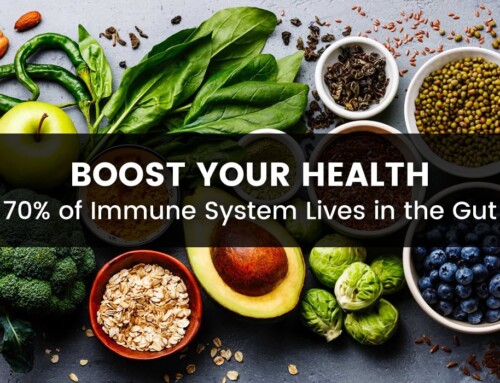I think we as a society strive to be too clean. We spend our lives washing everything, we throw food away if it touches the counter and every time we cough or sneeze we’re given antibiotics. We hate germs. But it may well be some of these same germs, or bacteria, that we need even more of. As a gastroenterologist in San Antonio, Texas, I get a lot of questions about bacteria from my patient. The questions tend to center around probiotics. Which ones are the best, how many bacteria cultures do we need, what diseases do probiotics help with, how long should I take probiotics, why haven’t they worked for me? These are all great questions; unfortunately we don’t have great answers. In order to answer these questions from a scientific standpoint we need good randomized control trials- something that is lacking in the area of probiotics. Most of our knowledge is from antidotal information, we’ve tried it a few times and it seems to work. As a society we are finally becoming more health conscious, so naturally the topic of supplements, vitamins and probiotics come up a lot. So what do we know (or think we know) and what advice should we listen to?
We do know that the trillions of bacteria that help make up each of us play a genuine roll in our health. There is evidence of the roll of bacteria in things like heart disease, kidney stones, obesity and gastrointestinal disorders. We know they play a big role in gas and bloating. When I see patients in my office and we’re dealing with their gastrointestinal issues there are a few main questions I get about probiotics, it is those I wish to address today.
What are Probiotics?
Probiotics are combinations of organisms such as bacteria or yeast that are believed to improve our health. They are also a multi-billion dollar industry so buyers beware. Our digestive system is home to over 500 different types of microorganisms that serve many purposes:
- They effect digestion of our food, motility of our gastrointestinal tract
- Help break down fiber and complex carbohydrates
- Help maintain the function and integrity of the lining of the gastrointestinal tract
- The friendly bacteria help fight off the bad bacteria.
They come in many forms like food products (yogurt), capsules and liquid. Some are very expensive and some are rather cheap. They are over the counter and don’t require a prescription.
Are Probiotics Safe?
According to the American Gastroenterological Association (AGA), probiotics safety is evident since they have a long history of use in fermented foods like yogurt. These types of probiotics don’t appear to cause illness. However, the AGA did go on to suggest that you should talk to your doctor before adding them to your diet.
The cautionary statement to consult your doctor is due to the lack of research done on probiotics, as I mentioned previously, along with usages by children, elderly, those breast-feeding and people who have weak immune systems.
Which Probiotics are Best?
This is one of the most common questions I get about probiotics. Unfortunately, as I mentioned above, we don’t know that answer. To truly answer this question we would need good randomized control trials where they compare the different probiotics head to head against each other and see who comes out on top. This study has not been done. Until that time, the best we have is antidotal evidence from our experience and our patients regarding what has worked for them. I tell my patient not to spend a lot of money on probiotics. The $20 probiotic may work just as well as the $80 one. Remember, the supplement industry is full of companies with false claims and false promises. Unlike the pharmaceutical industry, which is over regulated, the supplement industry can give you all kinds of false promises without true evidence to back up their claims. So again, buyers beware. I tend to mostly use products like Align, Florastor and VSL#3 with my patients, again not based on much scientific data but based on experience of what has worked for me and my patient’s feedback.
When should I take Probiotics?
I am a big believer in less medicine is better. I don’t want my patients going nuts with supplements, vitamins and probiotics. We do too much of that in America. Not only can it get expensive in a hurry, but also a lot of these supplements have side effects that we then have to deal with. I use probiotics in my patients in San Antonio Texas mainly when we are dealing with issues like IBS, gas and bloating, diarrhea or constipation, Crohn’s disease or ulcerative colitis, celiac disease and fibromyalgia. We use them anytime one of my patients is put on antibiotics for something or when they travel to a different country (where the diet will be different then they are used to). I typically use them for 3-4 weeks then stop. If treating a chronic condition, like IBS, and my patient notices that they feel better while on the probiotics then we continue them long term. Best we know there is no risk to long-term probiotic usage. For maintenance dose I cut back to every other day or so.
What else can I do to help keep my Gut Healthy?
Working to maintain an overall state of good health does make a difference in how we feel and how our gastrointestinal tract functions. Diet is very important. Low fat low carbohydrate diet helps. Minimizing certain medications that can affect the lining of the gastrointestinal tract like NSAIDs (ibuprofen for example) and minimizing alcohol consumption. There is also some evidence that a good exercise regimen could be beneficial – view article in Huffington Post. If you don’t feel like you’re feeling as good as you should, if you feel gassy or bloated, if your bowels have changed or if you get occasional abdominal cramps, try changing something up.
- • Eat better
- • Get a better night’s sleep
- • Cut out the cigarettes and/or alcohol
- • Try a FODMAPs diet
- • Exercise
- • Try probiotics. If none of this helps see your gastroenterologist for more assistance.
Bottom line is this: Are probiotics going to help everyone? No. Will they improve your symptoms? They might. Are they worth giving a try? Yes. While the information we have regarding probiotics is not definitive, I hope this analysis has been helpful. Good luck!
Image Credits: Vitazorb and Symprove





